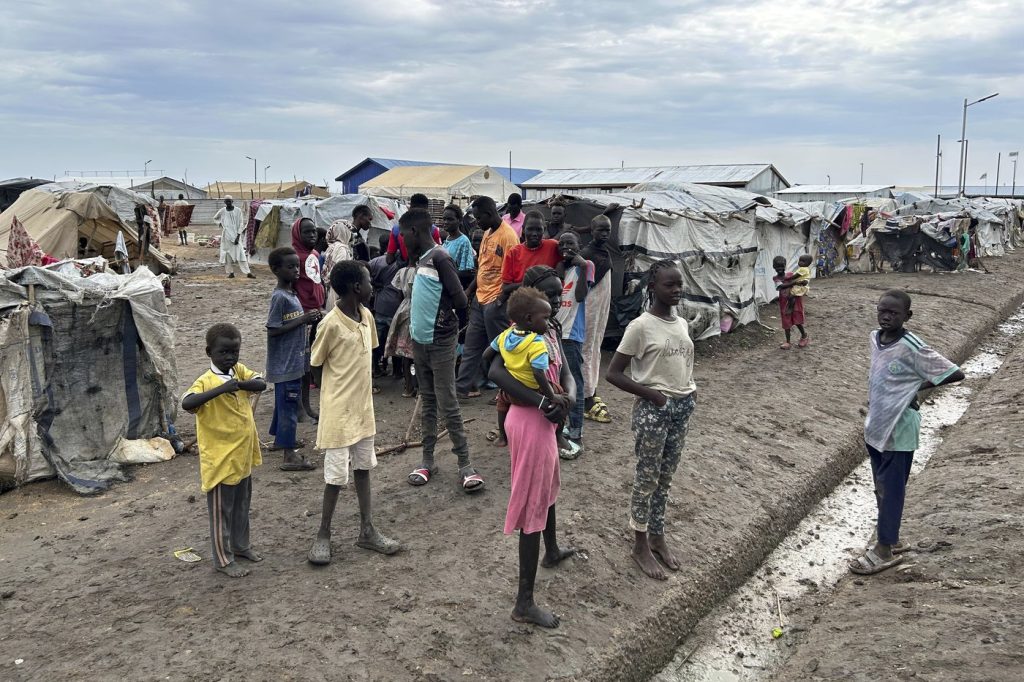RENK, South Sudan (AP) — Daud Mahmoud Abdullah, a 60-year-old man originally from Aweil in South Sudan, left his home in the mid-1980s during a period of war when South Sudan was still part of Sudan. Now, after enduring six months in a Sudanese prison, he has returned to his native South Sudan, a significant milestone after being away for nearly 40 years. In July 2025, Abdullah crossed the border back into South Sudan, reflecting on the ordeal he survived with the thought, "I am alive."
Abdullah's return follows a brutal civil war that has engulfed Sudan since April 2023, resulting in approximately 40,000 deaths and displacing nearly 13 million people, as reported by UN agencies. Previously, Abdullah had lived in Wad Madani, the capital of Al Jazirah State, where violence from the Rapid Support Forces (RSF) had become increasingly common. The RSF, notorious for atrocities committed in Darfur two decades ago, have once again brutally affected civilian populations, leading to his wrongful detention.
In January 2025, Sudanese Armed Forces began regaining control of Al Jazirah from the RSF while conducting sweeping arrests. Abdullah was apprehended on his way back from the market and accused of having connections with the RSF. He claims to have faced severe torture, including beatings and being burned with cigarettes, to force a confession he never made. Subsequently, he was imprisoned without charges, a fate shared with many others during this conflict.
A report released in March by the UN human rights body revealed systemic abuse whereby both SAF and RSF detained thousands arbitrarily, often without contact with their families, in overcrowded and unsanitary conditions. Abdullah described horrifying scenes within the prison: inmates dying from starvation, illness, or beatings, with corpses left in cells for days, as soldiers displayed indifference to their suffering.
Alongside Abdullah, other detainees recounted appalling conditions. One inmate, Michael Deng Dut, 29, revealed he had been tortured with electricity more than 18 times, while another, Simon Tong, 39, showed scars from knife torture. Many reported receiving scant food and water, leading to further health crises among inmates.
In July 2025, 99 South Sudanese prisoners were separated from the general population. As they awaited transportation, one individual died, leaving 98. On July 28, they were unexpectedly loaded onto a bus bound for an unknown destination. Abdullah realized he had crossed back into South Sudan only upon reaching the border, making Renk his first stop back in his homeland.
The town of Renk has emerged as a pivotal transit hub for South Sudanese returning from Sudan amid the ongoing civil war. UN agencies and the South Sudanese government initiated a transportation program aiding over 250,000 returnees. However, after global humanitarian funding cuts suspended the program on June 1, 2025, Renk became overcrowded with up to 12,000 people seeking refuge in makeshift shelters.
Despite the challenges, Abdullah experienced immense joy upon reuniting with his wife, daughter, and younger brother in Renk after many months apart. His wife had moved south with their family following his brother’s repeated arrests. Abdullah expressed a desire to return to Aweil and hopes to reconnect with family still in Sudan to reunite with them. He remarked, "If they come back safely, then we plan to go to Aweil, all of us, together."











